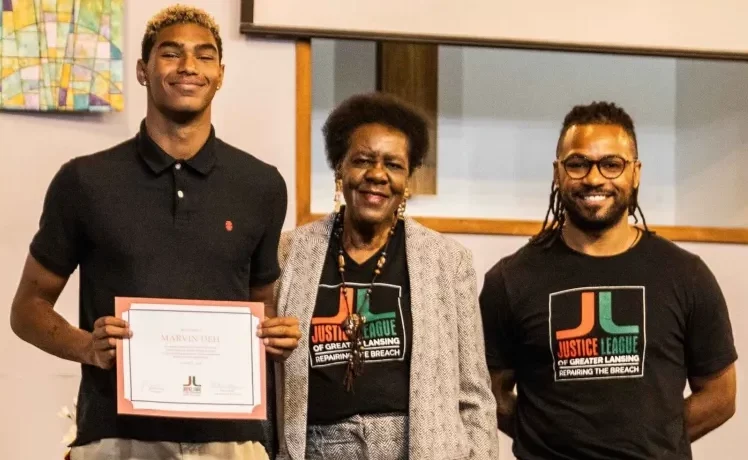As the national conversation around reparations gains momentum, communities across the United States are taking action to address the enduring legacy of slavery and systemic racism. And one Midwestern faith-based organization, the Justice League of Greater Lansing Michigan, is turning talk into action by addressing the racial wealth gap.
Founded in 2021, the organization is all about repairing the deep wounds left by slavery and systemic racism. White members of area churches committed to healing their relationships with the Black community and making amends for racial harms. Because of that, the “reparations will be committed mainly from predominantly white Houses of Worship as part of their efforts to repair the breach caused by centuries of slavery, inequality of wealth accumulation, and the failure to live into God’s Plan,” according to the Justice League’s website.
Indeed, the Justice League’s commitment to making things right resulted in them raising a reparations fund of more $400,000, built by payments from area churches and individuals who’ve taken a proactive approach to social justice. And so in early August, the Justice League handed out $5,000 scholarships to 10 college-bound high school grads.
Recipients were selected based on their 500-word essays that examined the racial wealth gap or generational wealth in America and how that gap has affected their families. Academic grades counted for 25% of the total score and finalists were also interviewed.
A common thread in their essays is that discrimination today has resulted from years of social injustices, and it continues to limit African-American families’ access to basic wealth builders –education, higher paying jobs and home ownership,” says Willye Bryan, founder and vice president of the Justice League. “This doesn’t allow for generational wealth building, nor does it allow for closing the racial wealth gap.”
When he thinks of generational wealth, scholarship winner Zachary Barker, who’s headed to Michigan State University, wrote that, “I think of families like the Rockefellers, Gateses, and Buffets. Recently, some famous Black people have achieved billionaire status like Michael Jordan, Jay Z, Lebron James and Oprah. But the rest of us are still struggling to get by.”
Olivia Burns, who will attend Michigan State University’s Honors College, is a Black transracial adoptee who was exposed first-hand to the racial wealth gap. She wrote about the relative wealth in her white parents’ household compared to her Black biological family’s household.
“Both my adoptive parents went to college paid for by their parents and received bachelor’s degrees,” Burns wrote. “Neither of my biological parents nor siblings have had the opportunity to attend college, and most were barely able to finish high school because they had other responsibilities like working or providing childcare for my younger siblings. Today my adoptive family owns their homes and no one in my biological family owns their homes.”
Marvin Deh, another scholarship winner who’s also off to Michigan State, reminded us that legal racial segregation was only two generations ago ‚ and so the racial wealth is still very much ongoing.
“Most of our grandparents can describe what it was like to be African-American back then and the struggles they had to face,” Deh wrote. “They couldn’t build generational wealth when the world was actively pulling the rug from underneath them. There’s only been two generations to be given a ‘fair’ chance and enough time to build upon …. On paper the odds are ‘fair’ but in reality we still have to face racism, police brutality, injustice, systematic oppression, lack of influence, stereotypes, and societal pressure.”
“This is not charity and it’s not designed to make you feel better about giving a check,” Bryan said in an interview last year. Along with raising funds for the scholarships, the Justice League hopes to address other systemic barriers to wealth creation by supporting Black home ownership and entrepreneurship.
As J’Kyla Hobbs, who will be attending the University of Michigan, put it: “Investing in affordable housing, improving access to quality education and healthcare, and reforming the criminal justice system are critical steps toward building a more equitable society.”















